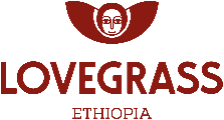DercolBags Packaging is a company that produces in Ghana eco-friendly and biodegradable packages to replace single-use plastic packages and eradicate plastic pollution. The company was presented at...

Salma Abdulai is the Co-Founder and CEO of Amaati Co Ltd. She has 10 years of working experience with international non-profit organisations, in addition to extensive experience in the agricultural sector, particularly working with small scale rural farmers and women groups. Salma holds a Bachelor of Science in Agricultural Economics from the University for Development Studies in Tamale, Ghana, and a Master of Philosophy in Agricultural Economics from the Kwame Nkrumah’ University of Science and Technology, Kumasi, Ghana. Salma was among the entrepreneurs selected for the 2022 SOCAP Social Capital Markets Entrepreneur Program.

Type: Limited Liability Company
Year of Founding: 2013
Number of Employees: Amaati currently works with 5,000 smallholder farmers, and their Fonio processing factory employs around 20 young women, mostly school dropouts
CEO: Salma Abdulai
Mission: To build sustainable communities through the use of Fonio, which nourishes the land, people and society
Vision: To stimulate production and consumption of Fonio for global nutrition
Founding
AMAATI Company Ltd, previously Unique Quality Product Enterprise, works with farmers (particularly women) in producing and processing organic-certified Fonio. The social enterprise first started as an NGO, primarily working to help women access degraded lands to cultivate Fonio. Since many women in the rural Savannah Zone in Ghana do not own land, it has become very difficult for women to engage and participate in agriculture, compromising food security and excluding women from agricultural value chains. Through a regenerative land management system, AMAATI supports vulnerable rural women in breaking through these barriers, thus creating opportunities for sustainable livelihoods. Fonio was chosen in particular as it is a wild-weed that is drought and flood resistant, and can be grown on marginal lands without fertilizer or pesticide application. Additionally, after three years of Fonio cultivation, the previously degraded land is fertile, and capable of hosting other crops in addition to Fonio. Hence, farmers are able to diversify their production as well. AMAATI grew from just 10 landless women in 2014, to their current capacity of 2000 farmers. By supporting rural woman farmers with skills training and income generation, the company provides a path out of poverty and inequality.
This social enterprise has been a pioneer in reviving the cultivation and consumption of Fonio in Northern Ghana. Amaati goes beyond their products, as their primary aim is to improve food security, contribute to a healthy plant, reduce poverty among women and employ youth. As it is becoming increasingly difficult for farmers to break even with maize production, Fonio provides a viable alternative due to its nutritious properties, the crops’ climate resiliency and its ability to revive the environment.
Relationships with Smallholders
Amaati has built the capacity of over 3000 farmers, 80% of which are women, to produce Fonio. Supporting women to grow Fonio reduces hunger and poverty and improves household nutrition. Most of the women working with Amaati have doubled their income, and many are intercropping Fonio with other crops. Hence, the activities of Amaati are long-term investments, as they focus on sustainable agriculture and enabling livelihood development. The growth of healthy agro-ecosystems needing minimal inputs and that are tended by agricultural stewards who have newfound agency in the agricultural sector, has secured Amaati’s sustainable business model by ensuring long-term agricultural yields.
In its processing facilities, Amaati hires women who are usually school dropouts, enabling women who do not have access to land or jobs in the off-season with employment and training, so that they can have sustainable income.
Ammati also collaborates with government institutions, researchers, NGOs, IGO’s and public and private institutions. Engaging these stakeholders in the food chain has allowed Ammati to promote sustainable consumption of indigenous foods in Ghana.
Products Covered and Markets
Fonio is an indigenous cereal that does not contain any gluten and has a high quantity of fiber, iron, amino acids, protein, potassium among other nutrients – granting it a superfood. Ammati produces 100%, non-GMO DIM Fonio without any additives, which can easily replace maize or rice in any meal. The DIM Fonio is marketed for its use in preparing local and continental dishes, including Dim Fonio salad, waakye, aroni and jollof – all recipes available on Ammati’s website.
DIM Fonio can be found both on local and export market. Ammati is exporting Fonio to the USA, Italy, UK, Switzerland and Canada, and is beginning to sell in South Africa as well.
Ammati is dedicated to reviving and adding value to sustainably grown crops – strengthening the resilience of rural communities and the environment.
DIM Fonio is sourced for its high quality standards. Ammati produces their Fonio under high strict hygienic conditions, meeting both local and international standards. The company is certified by the Ghana Standards Authority, Food and Drugs Authority (FDA) Ghana, USDA Organic and EcoCert.
Innovations: Milestones and Expansion Plans
In addition to its focus on women, Ammati wants to ensure that future generations can continue to thrive in the agricultural sector. The company has its own 1000 hectares of farmland where they promote family farming by registering families to farm on this land, and here, youth can learn from parents and benefit from training and demonstration. These family farms also ensure sustainable incomes, and provide highly nutritious food to homes.
AMAATI has a target of reaching 1 million hectares of sustainable, regenerative farmland by 2030, and requires the further support of partnerships and financial supports.
Success Factors and Lessons Learned
Salma attributes three main factors to Ammati’s success and the company’s ability to scale up: the focus on Fonio, fostering partnerships and catering to the needs of their farmers. Ammati is involved in every element of the Fonio value chain, from supporting the farmers, buying their Fonio, adding value in the factory and marketing the products. While the company has done research and development into other innovative products, the focus of putting time and resources on developing just the Fonio products to a point where they know they are financially independent, is one of the ways that they have been able to scale up faster and grow. Dedicating their resources on developing the value chain of Fonio is critical, as Fonio not as accessible as maize or soya beans, so there needs to be a lot of effort, through demonstrations for example, to promote this cereal.
Apart from being highly focused, the success of Ammati is also attributed to partnerships. The company works with other NGOs and other international organizations who have similar objectives, as well as developing relationships on the market spectrum through networking with highly successful organizations and entrepreneurs.
Lastly, the growth of AMAATI is connected to the women and the smallholder farmers they support. Instinctively, it is beneficial to identify the needs of the farmers. This has been one of the best ways to get women to participate and be highly motivated to do so, which has influenced the growth of the company. When the women come onboard, they are growing together with the company, and the value that these relationships creates is very important to Ammati.
AMAATI has received numerous awards for their work in regenerating degraded lands, nourishing people through high quality local foods, and empowering women in societies throughout West Africa. This includes the Resilience Award Winner, 2020 by Swiss Re Foundation, and the SEED Award Recipient for Sustainable Agriculture in 2016, among others.
Additional Resources
Join our Agrinnovators community forum to discuss and explore how to encourage innovations across agricultural value chains to transform food systems in Africa, promote sustainable agriculture, and leverage investment. Share insights, ask questions, and collaborate on innovative solutions for a greener future
Recent Business Profiles

DercolBags Packaging is a company that produces in Ghana eco-friendly and biodegradable packages to replace single-use plastic packages and eradicate plastic pollution. The company was presented at...

JOULEU is a Senegalese horticultural company that contributes to food self-sufficiency in Senegal and the sub-region while promoting agro-ecology and integrating digital transformation into...

GIPA FOODS & GENERAL SUPPLIES LIMITED provides smallholder producers with a cassava processing solution that reduces post-harvest losses by adding value to the crop. The company was presented in...

BioLife Tech provides digital solutions that connect pineapple growers in Benin with local processors, exporters and traders, and enable technical monitoring.They presented at Innovation Session...

Lovegrass LTD is a company that manufactures teff-based products. They presented at Innovation Session n°16.